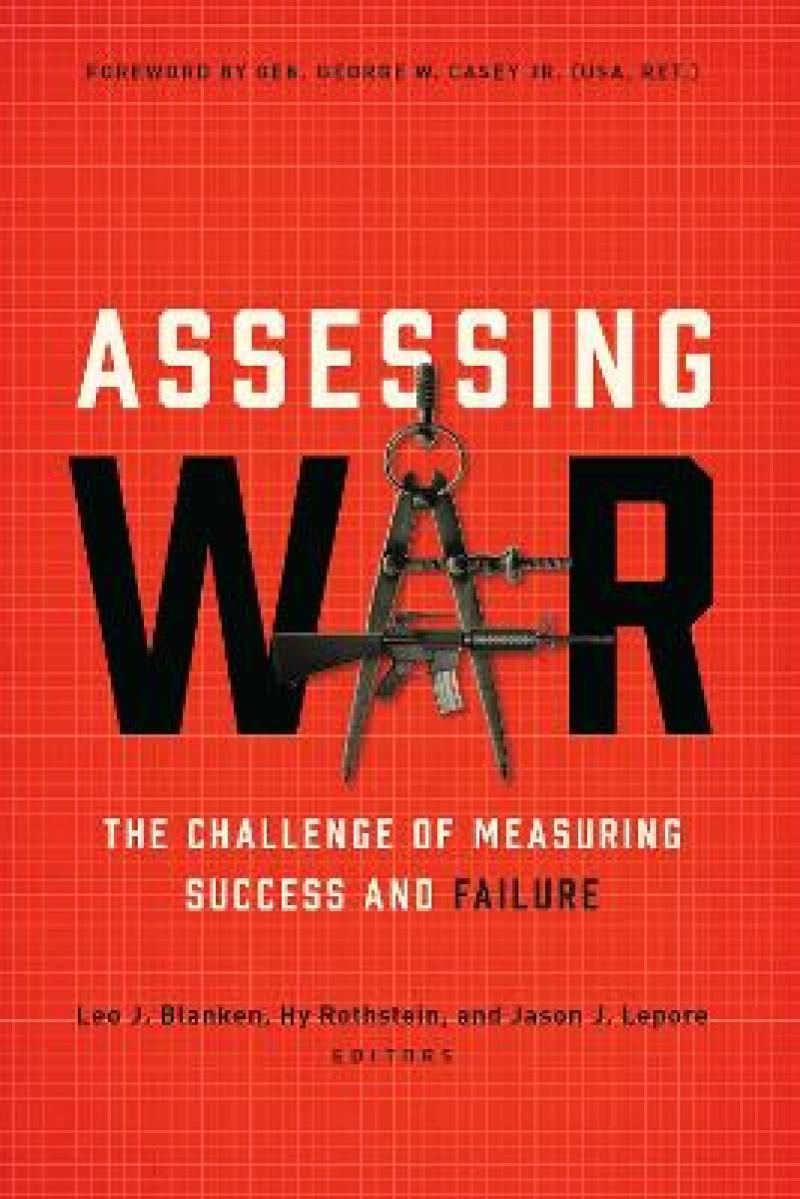Today's protracted asymmetrical conflicts confuse efforts to measure progress, often inviting politics and wishful thinking to replace objective evaluation. In Assessing War, military historians, social scientists, and military officers explore how observers have analyzed the trajectory of war in American conflicts from the Seven Years' War through the war in Afghanistan. Drawing on decades of acquired expertise, the contributors examine wartime assessment in both theory and practice and, through alternative dimensions of assessment such as justice and proportionality, the war of ideas and economics. This group of distinguished authors grapples with both conventional and irregular wars and emerging aspects of conflict-such as cyberwar and nation building-that add to the complexities of the modern threat environment. The volume ends with recommendations for practitioners on best approaches while offering sobering conclusions about the challenges of assessing war without politicization or self-delusion.
Covering conflicts from the eighteenth century to today, Assessing War blends focused advice and a uniquely broad set of case studies to ponder vital questions about warfare's past-and its future. The book includes a foreword by Gen. George W. Casey Jr. (USA, Ret.), former chief of staff of the US Army and former commander, Multi-National Force-Iraq.
Les mer
Drawing on decades of acquired expertise, this book examines wartime assessment in both theory and practice and, through alternative dimensions of assessment such as justice and proportionality, the war of ideas and economics.
Les mer
Foreword by Gen. George W. Casey Jr. (USA, Ret.) Introduction: The Challenge of Wartime AssessmentLeo J. Blanken and Jason J. Lepore Part I. Theory1. Principals, Agents, and AssessmentLeo J. Blanken and Jason J. Lepore2. Civil-Military Relations and Operational AssessmentsHy Rothstein3. Wartime Strategic Assessment: Concepts and ChallengesScott Sigmund GartnerPart II. Historical Cases4. Assessing Proxy Forces: A Case Study of the Early Years of the Seven Years' War (1754-63) in North AmericaJohn Grenier5. Assessing War: The Revolutionary WarEdward G. Lengel6. Assessing Enemy Civilian Will: The United States Goes to War, 1861Brooks D. Simpson7. "Keep 'Em Moving": The Role of Assessment in US Cavalry Operations against the Plains IndiansMichael Richardson 8. Assessing the Philippine WarBrian McAllister Linn9. Putting the Fuse to the Powder: Strategic Assessment in the First World WarD. Scott Stephenson10. Assessment in World War IIGerhard L. Weinberg11. Measuring Gains on the Battlefield and at the Peace Table: Shifting Assessments during the Korean WarConrad C. Crane12. Choosing Progress: Evaluating the "Salesmanship" of the Vietnam War in 1967Gregory A. DaddisPart III. Current Cases13. Assessing Counterinsurgency: The Iraq War, 2004-5William C. Hix and Kalev I. Sepp14. Circular Logic and Constant Progress: IW Assessments in AfghanistanAlejandro S. Hernandez, Julian Ouellet, and Christopher J. Nannini15. Monitoring from Afar: How Al-Qaeda Assesses Its ProgressMark StoutPart IV. Alternative Dimensions of Assessment16. Assessment, Proportionality, and Justice in WarBradley J. Strawser and Russell Muirhead17. Assessing Cyber WarDorothy E. Denning18. Assessing the War of Ideas during WarRobert Reilly19. Assessing Economic Outcomes in Nation-building OperationsAric P. ShafranConclusion: Can We Learn from the Assessment of War?Anthony H. Cordesman and Hy Rothstein ContributorsIndex
Les mer
A timely and needed anthology. . . . A valuable book for serious students of strategy and military policy and is a must for readers interested in assessing military success.
Assessing War clearly documents that the American defense intellectual community does a very poor job of answering two questions concerning the vital issue of national security: Who will we fight? And, once war begins, are we winning? The remarkably effective historical approach of the book reveals that these failures are nothing new. George Washington was as much in the dark about how to answer these questions as our huge forecasting institutions are today. The enduring value of the work is that it offers qualitative and quantitative means for predicting and assessing wars in the future. Those inside the Beltway who recognize the importance of finding the means to overcome this chronic and historically enduring failure must read it.
Les mer
Assessing War clearly documents that the American defense intellectual community does a very poor job of answering two questions concerning the vital issue of national security: Who will we fight? And, once war begins, are we winning? The remarkably effective historical approach of the book reveals that these failures are nothing new. George Washington was as much in the dark about how to answer these questions as our huge forecasting institutions are today. The enduring value of the work is that it offers qualitative and quantitative means for predicting and assessing wars in the future. Those inside the Beltway who recognize the importance of finding the means to overcome this chronic and historically enduring failure must read it. -- Robert H. Scales, MG (USA, Ret.)
Les mer
Produktdetaljer
ISBN
9781626162457
Publisert
2015-12-15
Utgiver
Vendor
Georgetown University Press
Vekt
454 gr
Høyde
229 mm
Bredde
152 mm
Aldersnivå
P, 06
Språk
Product language
Engelsk
Format
Product format
Innbundet
Foreword by
Contributions by
